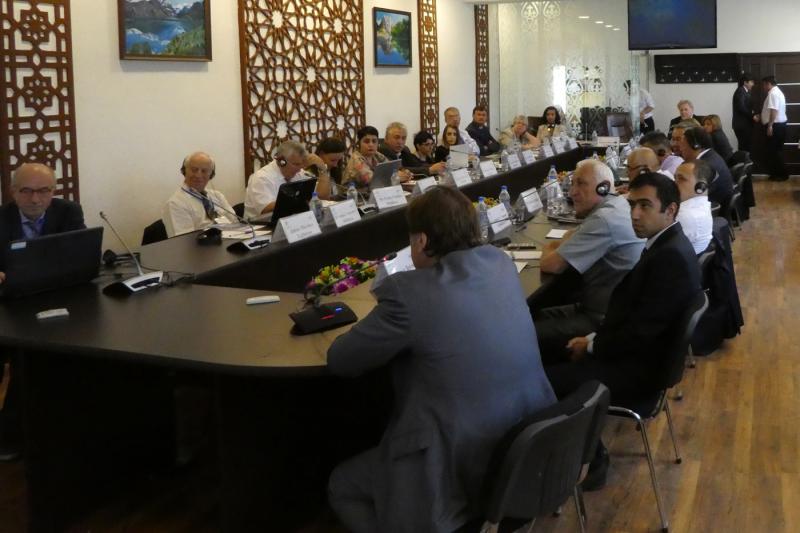
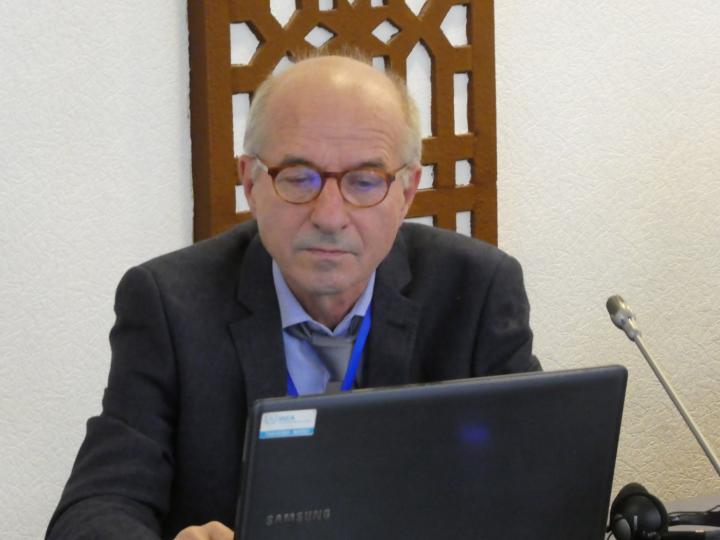
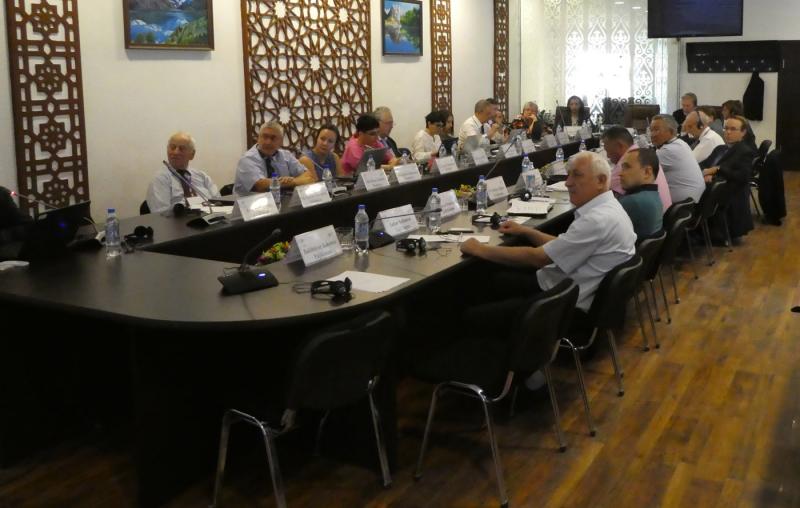
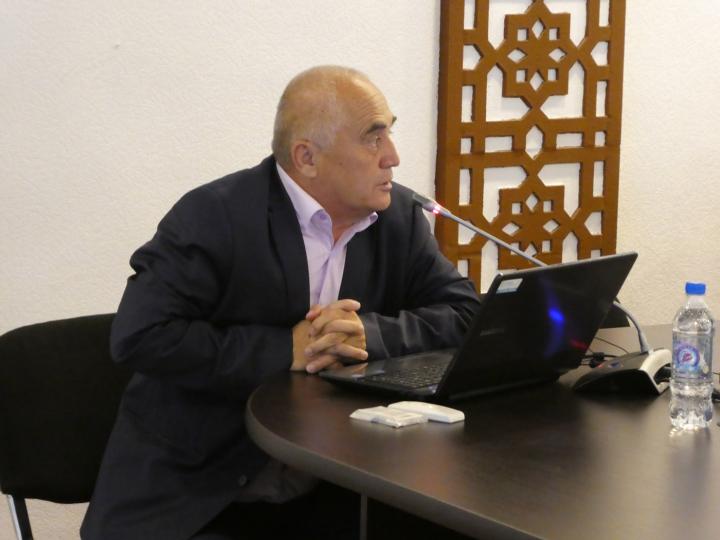
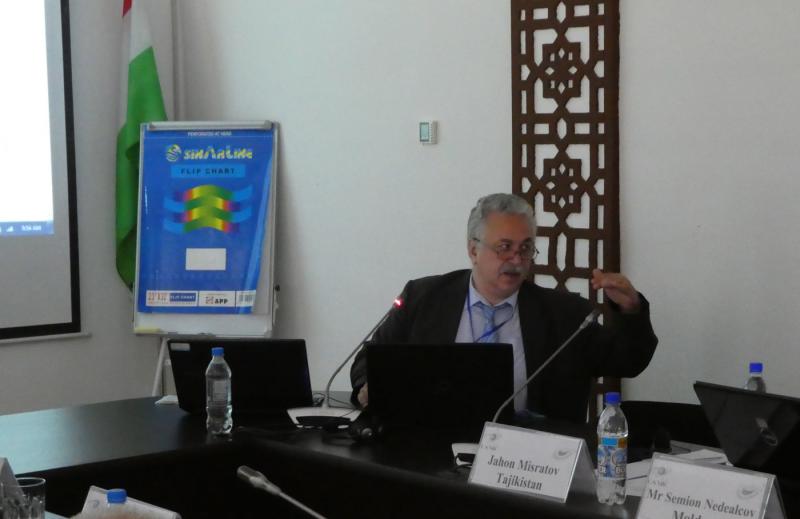
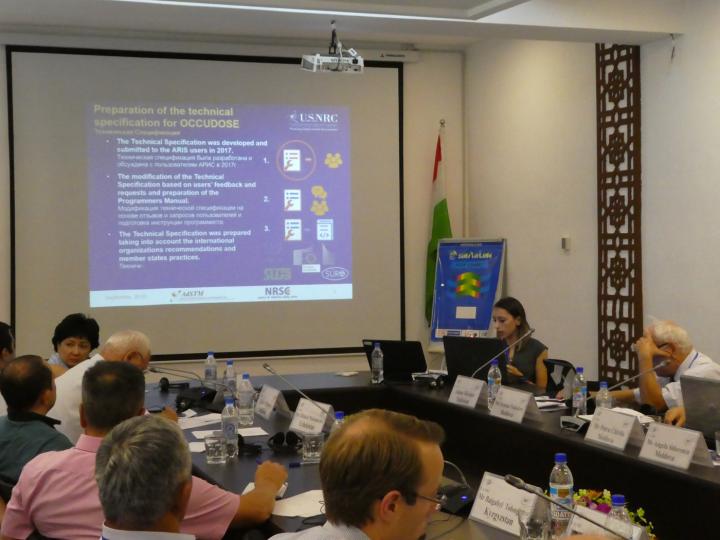
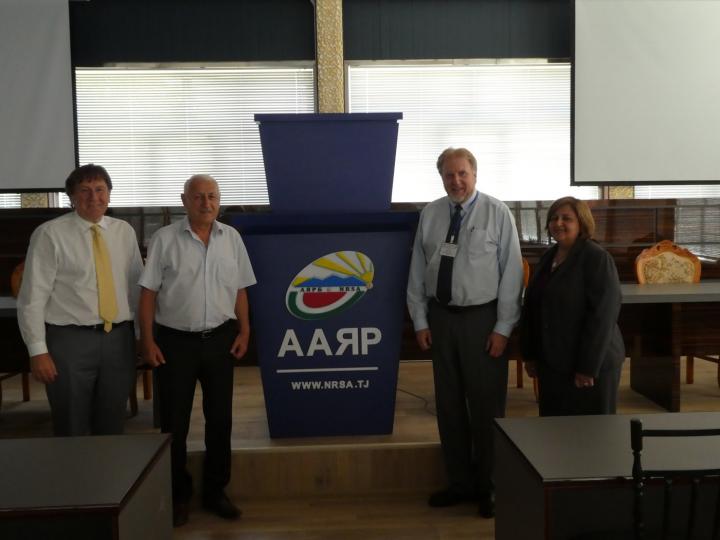
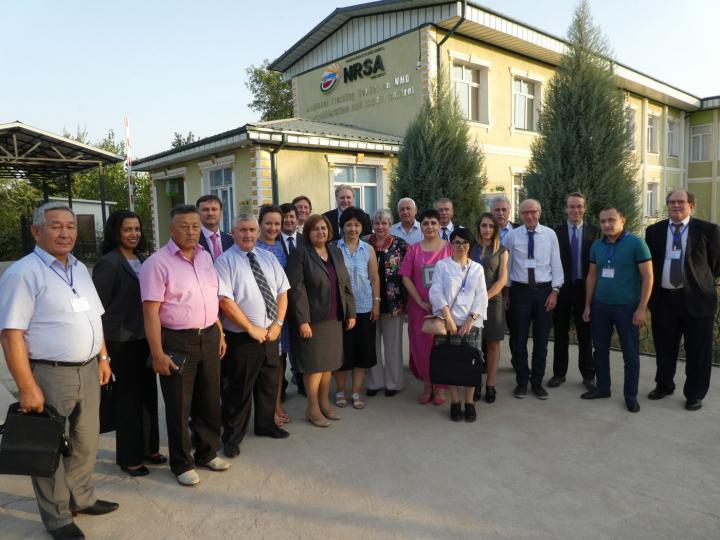
The U.S. Nuclear Regulatory Commission’s (USNRC) Radiation Sources Regulatory Partnership (RSRP) held its 7th Regional Meeting for the Former Soviet Union (FSU) Countries in in Dushanbe, Tajikistan, from September 10-12, 2018. The meeting was hosted by the Nuclear and Radiation Safety Agency of Tajikistan (NRSA) and was attended by 17 representatives of the regulatory authorities from six countries: Armenia, Georgia, Kyrgyzstan, Moldova, Tajikistan and Uzbekistan. The meeting was held at the NRSA Tajikistan Regional Training Center, which was constructed with RSRP assistance.
The RSRP is an NRC-funded program that assists member country partners with efforts to strengthen regulatory control over the use of radiation sources. The program has been very active with FSU countries for more than 14 years.
Qi Tech, LLC. with assistance from its subcontractor Advanced Systems Technology and Management, Inc (AdSTM), provides the technical and training expertise for the RSRP. AdSTM conducted this meeting. Representatives of the U.S. Department of Energy’s (DOE) National Nuclear Security Administration, the International Atomic Energy Agency (IAEA), and the Lithuanian Radiation Protection Center (RSC) participated and contributed to the success of the meeting.
The meeting included an overview of RSRP activities and accomplishments in the FSU and other regions. The RSRP partner country representatives presented the status of their regulatory program, discussed recent accomplishments, including completion of tasks under RSRP, and presented current regulatory gaps and challenges. RSRP experts provided an overview of the Advanced Regulatory Information System (ARIS) software (developed under NRC sponsorship) and its capabilities for supporting a regulatory program, discussed recent improvements in ARIS version 2.5 and the development status and capabilities of the OCCUDOSE module designed for tracking occupational exposure. During the discussions, suggestions for improvement of ARIS were proposed, and potential implementation of those suggestions was discussed with users and the developer, the Armenian Nuclear and Radiation Safety Center (NRSC).
The IAEA expert discussed planned activities for regulatory development in FSU countries through the Regulatory Infrastructure Development Program (RIDP). The representative of the Lithuanian RSC made a presentation on incorporating EURATOM Directives and IAEA guidance including that in GSR Part 3 into national legislation. The Director of the Tajikistan NRSA discussed the results of a recent meeting of the Steering Committee of the European Union and Central Asia (EuCAS) Network and discussed opportunities for future cooperation of that organization with regulatory bodies. The DOE representative presented the role of DOE in supporting regulations related to nuclear and radiological security in partner countries.
NRC, supported by AdSTM, conducted bilateral meetings with each participating country and identified country specific needs. The needs will be analyzed and placed into the RSRP FSU Master Plan for activities to be conducted over the next 24 months.
